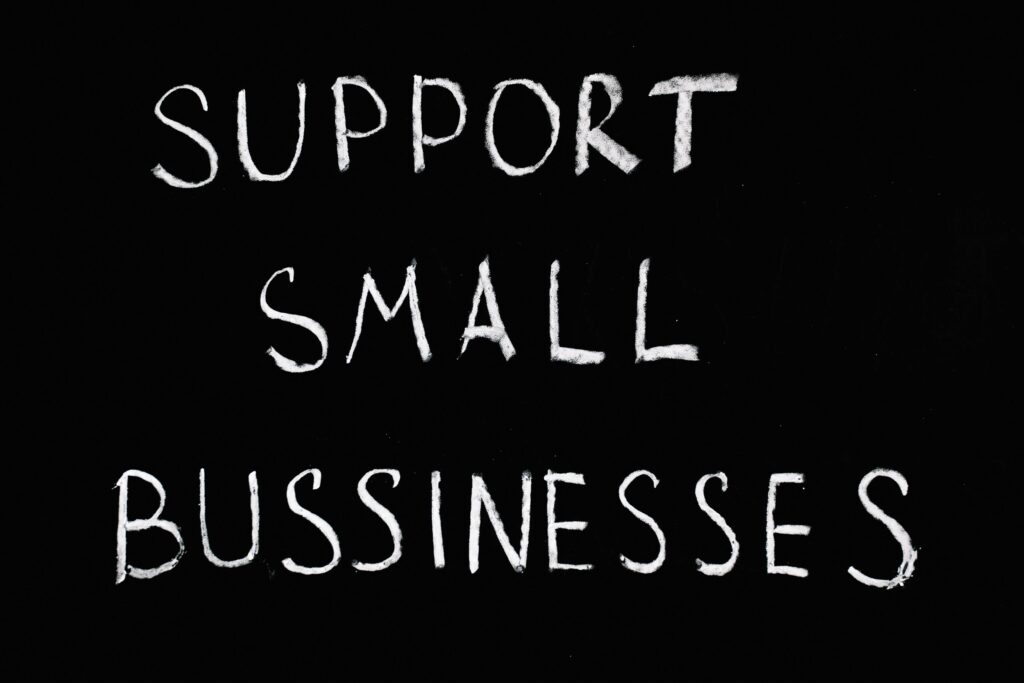Below is a consolidated, easy-to-read document on budgeting and the mindset behind it—combining practical techniques with an understanding of how our beliefs and habits influence financial success. This guide covers both business and personal perspectives, illustrating how becoming financially mindful can transform your approach to money.
You should read this 10 times, over a couple of days, with a pen in your hand
1. Opening Summary
Embarking on the journey to become more budget-conscious is about more than just spreadsheets and expense-tracking apps. It’s a shift in mindset, where every financial decision—big or small—happens with intention. Whether you’re saving for the future or trying to handle current obligations more smoothly, adopting a budget-focused lifestyle helps you prioritize, plan, and ultimately find peace of mind about where your money goes.
2. Budgeting: More Than Numbers
- Budgeting = Mindset
Far beyond tallying expenses, budgeting is about consistently asking, “Do I really need this, or is this a want?” - Practical Tools vs. Habits
Spreadsheets and apps are helpful, but real progress comes from building disciplined habits—treating budgeting as a continuous, automatic thought process.
Suspect you might’ve just “donated” your money to the universe? Then this guide is for you!
How Gavin Created This Document
Gavin compiled every budgeting mistake he’s ever made and sought help to turn them into lessons. The result: a sometimes painfully honest look at why “budgeting is really a cultural issue”—and how understanding it better can keep your money from vanishing into thin air.
3. Business Budget vs. Personal Budget
3.1 Business Budget
- Strategic Decision-Making
Balancing growth with cost control, choosing high-impact investments, and continuously monitoring profitability. - Profit-Driven Focus
Every business expense should directly or indirectly drive revenue, reduce costs, or strengthen operations.
3.2 Personal Budget Awareness
- Lifestyle and Habits
Day-to-day decisions—like cooking at home versus dining out—reflect how you value time, convenience, and savings. - Mindset and Priorities
Personal budgeting focuses on security, debt reduction, and meaningful experiences. Recognizing needs vs. wants helps you reshape habits and achieve a more stable, fulfilling life.
4. Keys to Becoming “Financially Mindful”
- Mindset Shift
- Treat budgeting like an ongoing conversation in your head, not a one-time task.
- Consistent choices, no matter how small, shape your long-term financial reality.
- Needs vs. Wants
- “Needs” are essential (housing, utilities, business basics).
- “Wants” are discretionary (entertainment, luxury items).
- Knowing the difference helps you avoid impulsive spending.
- Everyday Decisions
- Success often hinges on daily habits—small purchases add up quickly.
- Pausing before each outlay can have a dramatic positive impact over time.
- Practical Tools
- Use spreadsheets or apps for tracking, but focus on why you’re spending.
- Discipline trumps data; a spreadsheet won’t help if you ignore its warnings.
- Cultivating Awareness
- Review your goals regularly: e.g., paying off debt or saving for a down payment.
- Engage in ongoing education—conversations, articles, or coaching sessions can reinforce mindful budgeting.
4.1 Quick Tips for Daily Budget Awareness
- Create Mini Checkpoints
Start each day with a short list of financial goals—whether that’s controlling spending or growing savings. - Categorize Your Spending
Label each purchase as a “need,” “want,” or “nice-to-have.” That quick pause can prevent unconscious spending. - Implement a 24-Hour Rule
For non-essential buys, wait a full day. This cooling-off period curtails impulse shopping. - Track the Little Things
Jot down every small purchase. You’ll spot patterns (and potential savings) faster than you think. - Celebrate Small Wins
Sticking to a daily or weekly limit? Give yourself credit. Positive reinforcement cements good habits.
5. Recognizing & Overcoming the Poverty (Scarcity) Mindset
5.1 What Is a Poverty Mindset?
- Definition
A deeply ingrained belief that there’s never enough, leading to spending every dollar before it “disappears.” - Not Income-Dependent
Even high earners can suffer from a scarcity mindset, often due to childhood experiences or ingrained habits.
5.2 Consequences
- Living Payment to Payment
Spending everything (even GST, PAYG, super contributions) can trigger cash-flow crises and tax troubles. - Chronic Stress
Constant money worries undermine peace of mind and lead to poor decisions. - Opportunity Cost
Funds that could go to investments or savings vanish in impulsive spending.
5.3 Causes and Signs
- Root Causes: Upbringing, emotional triggers, lack of long-term vision.
- Signs: Depleting savings, avoiding financial conversations, misusing business funds.
5.4 Shifting Out of Scarcity
- Awareness and Acceptance
- Recognize destructive patterns.
- Understand your mindset may be outdated for your current reality.
- Perspective Shift
- Start believing there will be “enough” tomorrow.
- Track small wins—reducing debt or boosting savings—to build momentum.
- Implement Structures and Boundaries
- Separate tax or staff funds into distinct accounts.
- Automate transfers to savings or investments to remove emotional decision-making.
- Set Meaningful Goals
- Clarity drives discipline. Whether it’s buying a house or building an emergency fund, a concrete goal replaces vague fear with purpose.
- Seek Support and Education
- Work with accountants, advisors, or peer groups for accountability.
- Consider therapy if deep-seated anxieties persist.
- Practice Mindful Spending
- Always ask, “Is this truly a need or a want?”
- Allow a cooling-off period before big (or even moderate) purchases.
- Emotional Interventions
- If past trauma fuels your scarcity mindset, tools like CBT or mindfulness can help reprogram unhelpful beliefs.
6. Rebounding from Financial Despair: Micro Planning & Strategy
6.1 Feeling Overwhelmed
- High Tax Debt
Creates a sense of impending doom. Open acknowledgment is the first step to recovery. - Market Pressure
Competing on price alone can erode margins and confidence. - Health & Dignity
Prolonged stress impacts mental and physical health—leading to shame or embarrassment.
6.2 Micro Planning
- Small, Consistent Steps
- Daily/Weekly Check-Ins: Track spending, invoices, progress on bills.
- Budget in Bite-Sized Pieces: Refine small, everyday costs first.
- Micro Goals: Pay off small portions of debt, raise prices slightly, or increase client retention a little at a time.
- Reevaluate Your Market Position
- Pricing Strategy: Differentiate to avoid bottom-dollar pricing wars.
- Core Competencies: Focus on what sets you apart; quality often commands a better price.
- Community Engagement: Building relationships locally or professionally can open doors to new referrals.
- Balance Immediate vs. Long-Term
- Address Tax Debt: Negotiate payment plans; stick to predictable, consistent payments.
- Strategic Investments: After stabilizing cash flow, reinvest to foster growth.
- Emergency Cushion: Start small, but aim for a buffer against unexpected costs.
6.3 Ongoing Mindset Maintenance
- Recognize Progress
Small milestones (like reducing tax debt) warrant celebration. - Positive Reinforcement
Use visual trackers or dashboards to see momentum in real time. - Healthy Boundaries
Take care of your mental health—financial resilience improves when you’re in a good headspace.
7. Appearance vs. Reality: Breaking the Need to “Show” Success
7.1 Why People Overspend
- Social Pressure & Cultural Norms
Feeling judged by peers or through social media highlights can spark overspending. - Fear of Inadequacy
To avoid seeming “less than,” some people buy what they can’t afford. - “Fake It Till You Make It” Gone Wrong
When used too literally, this leads to escalating debt without genuine success. - Family Patterns
Learned behaviours from parents or guardians can persist well into adulthood.
7.2 Returning to a More Sensible Lifestyle
- Honest Financial Assessment
- List debts, expenses, and income.
- Determine real affordability by comparing genuine costs vs. wants.
- Redefine Success & Self-Worth
- Focus on internal goals (skills, well-being) rather than external image.
- Celebrate non-material achievements.
- Gradual Lifestyle Adjustments
- Identify which purchases genuinely add value.
- Create budgets that include occasional “treats” while preserving savings.
- Open Communication
- Discuss financial limits with family; they may appreciate the transparency.
- Friends might also be relieved to drop competitive spending habits.
- Build Financial Accountability
- Seek professional guidance or join peer groups.
- Hearing others’ success stories normalizes modest living.
- Mindset & Habits
- Ask: “Am I buying this to align with my goals, or to impress someone else?”
- Celebrate each debt repayment or budgeting success.
- Ongoing Self-Reflection
- Track emotional triggers—stress, envy, fear of missing out.
- Adjust goals and attitudes as needs change over time.
8. Final Thoughts
Being financially mindful is about integrating thoughtful, intentional decisions into your daily routine—across both business and personal spheres. By recognizing the emotional and psychological factors that drive overspending or under-saving, you can break cycles of financial stress and start building real, long-term security.
- Consistency Over Perfection: Budgeting isn’t a one-shot event—it’s an evolving practice.
- Small Steps, Big Outcomes: Micro changes in daily habits can accumulate into meaningful financial shifts.
- Authentic Success: Shifting from “appearing” prosperous to truly achieving prosperity leads to better well-being, healthier relationships, and genuine financial freedom.
Remember: The difference between a successful budgeter and someone who struggles repeatedly isn’t the spreadsheet—it’s the consistency of making intentional choices, rooted in clear priorities.


